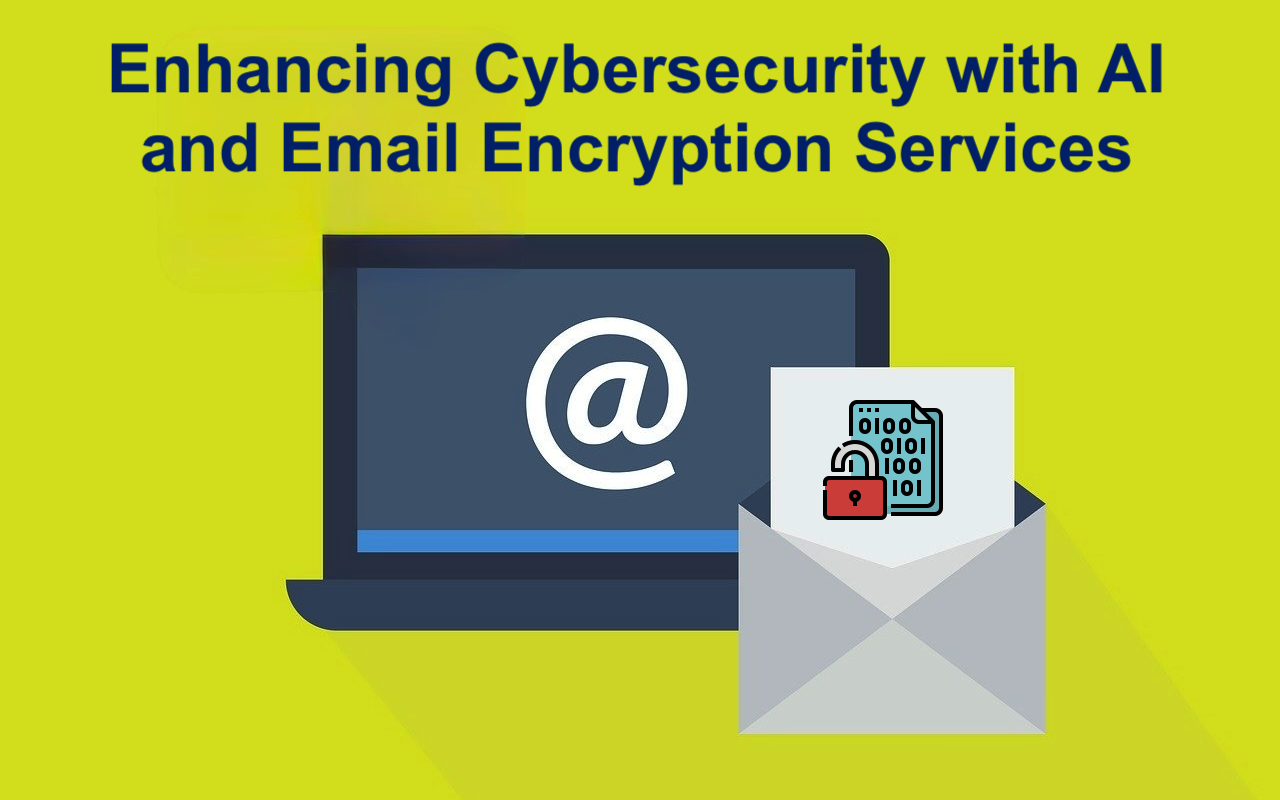
In an era where digital threats are increasingly sophisticated, the importance of cybersecurity has never been more critical. With the rise of cyber attacks, organizations are turning to advanced technologies like artificial intelligence (AI) to bolster their defenses. Understanding the role of email encryption services in this landscape is essential for maintaining secure communications.
The digital age has ushered in unprecedented connectivity and convenience, but it has also brought about significant cybersecurity challenges. As cyber threats become more sophisticated, traditional security measures struggle to keep pace. Artificial intelligence offers transformative potential in cybersecurity protocols by enhancing threat detection and response capabilities. The introduction of AI in cybersecurity not only improves efficiency but also provides a proactive approach to identifying vulnerabilities before they can be exploited.
The AI cybersecurity collaboration playbook
The Cybersecurity and Infrastructure Security Agency (CISA) recently introduced a groundbreaking initiative known as the AI Cybersecurity Collaboration Playbook. This comprehensive guide is crafted to foster collaboration across the AI ecosystem, uniting various stakeholders in the fight against cyber threats. By promoting shared knowledge and resources, the playbook aims to create a robust framework for tackling emerging challenges in cybersecurity.
The playbook outlines strategies for integrating AI into existing security infrastructures, emphasizing the importance of collaboration between government agencies, private sector entities, and academic institutions. This collaborative approach ensures that innovations in AI are effectively harnessed to address complex cyber threats, providing a dynamic defense mechanism that evolves alongside technological advancements.
One of the key objectives of the playbook is to establish standardized practices that facilitate seamless integration of AI solutions across diverse sectors. By doing so, it aims to reduce the barriers that often hinder effective collaboration and innovation within the cybersecurity landscape.

The importance of email encryption services
Email remains a primary mode of communication for businesses worldwide, making it a prime target for cybercriminals seeking unauthorized access to sensitive information. This underscores the critical need for email encryption services, which play an essential role in safeguarding communications from potential threats.
An email encryption service works by transforming readable data into an encoded format that can only be deciphered by authorized recipients. This ensures that even if emails are intercepted during transmission, their contents remain inaccessible to unauthorized individuals. Such protection is crucial not only for maintaining privacy but also for complying with data protection regulations and industry standards.
By implementing email encryption services, organizations can protect their valuable information assets while enhancing overall security posture. This proactive measure acts as a deterrent against potential breaches, providing peace of mind in an increasingly volatile cyber environment.
Combining AI and email encryption for enhanced security
The integration of AI technologies with email encryption services represents a significant advancement in cybersecurity strategies. AI-driven features offer enhanced threat detection capabilities by analyzing patterns and identifying anomalies that may indicate malicious activity. This enables faster response times and more effective mitigation efforts against potential breaches.
AI can also automate routine security tasks, freeing up resources for more strategic initiatives. For example, AI algorithms can monitor email traffic for signs of phishing attempts or malware delivery, providing real-time alerts to security teams, who can then take immediate action. This combination of AI and email encryption not only strengthens defenses but also streamlines security operations.
Moreover, AI's ability to learn from past incidents allows it to continuously improve its threat detection accuracy over time. This self-learning capability ensures that email security measures remain adaptive and resilient against evolving cyber threats.
Practical steps for implementing AI and email encryption
To effectively integrate AI solutions and email encryption services into your organization's cybersecurity strategy, it is important to follow a structured approach. Begin by conducting a thorough assessment of your current security infrastructure to identify potential vulnerabilities and areas where AI could enhance your defenses.
Next, prioritize selecting tools and services that align with your specific security needs. Consider solutions that offer comprehensive protection features such as inbound threat protection, outbound email encryption, and data loss prevention—all powered by AI technology—to ensure maximum coverage for your business communications.
Once selected, implement these solutions systematically across your organization while ensuring proper training for staff on new protocols and technologies. Regularly review and update your security measures as needed to keep pace with the rapidly changing threat landscape.
Conclusion
Integrating AI-driven security solutions and email encryption services marks a pivotal step toward strengthening cybersecurity defenses. Organizations can proactively mitigate cyber threats while ensuring secure communications by leveraging AI’s predictive analytics and automation alongside robust encryption protocols.Share this post
Leave a comment
All comments are moderated. Spammy and bot submitted comments are deleted. Please submit the comments that are helpful to others, and we'll approve your comments. A comment that includes outbound link will only be approved if the content is relevant to the topic, and has some value to our readers.

Comments (0)
No comment